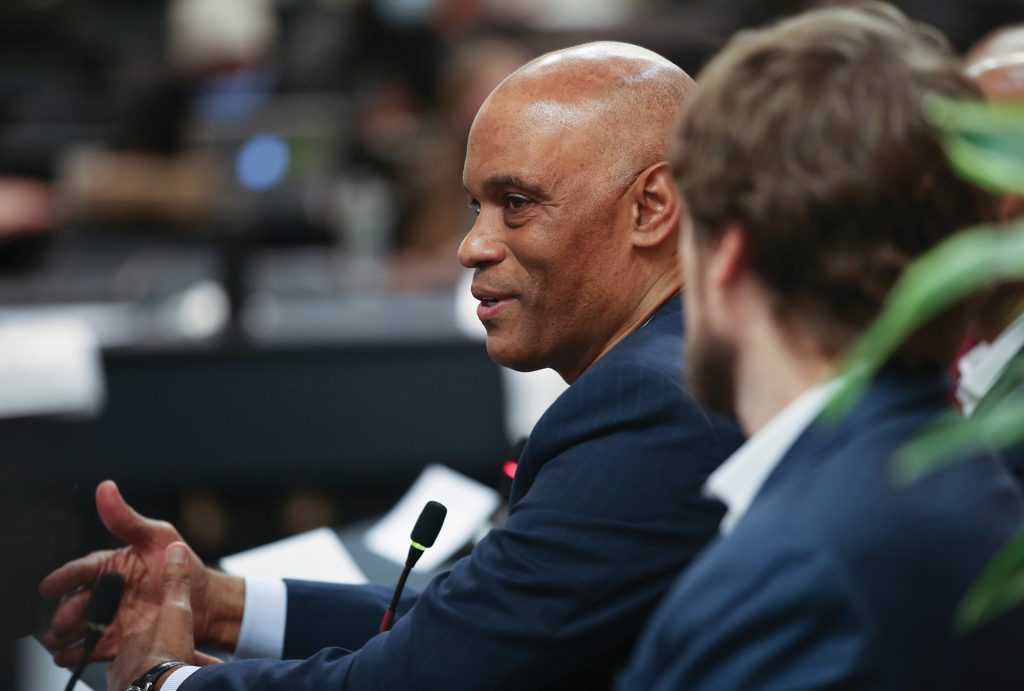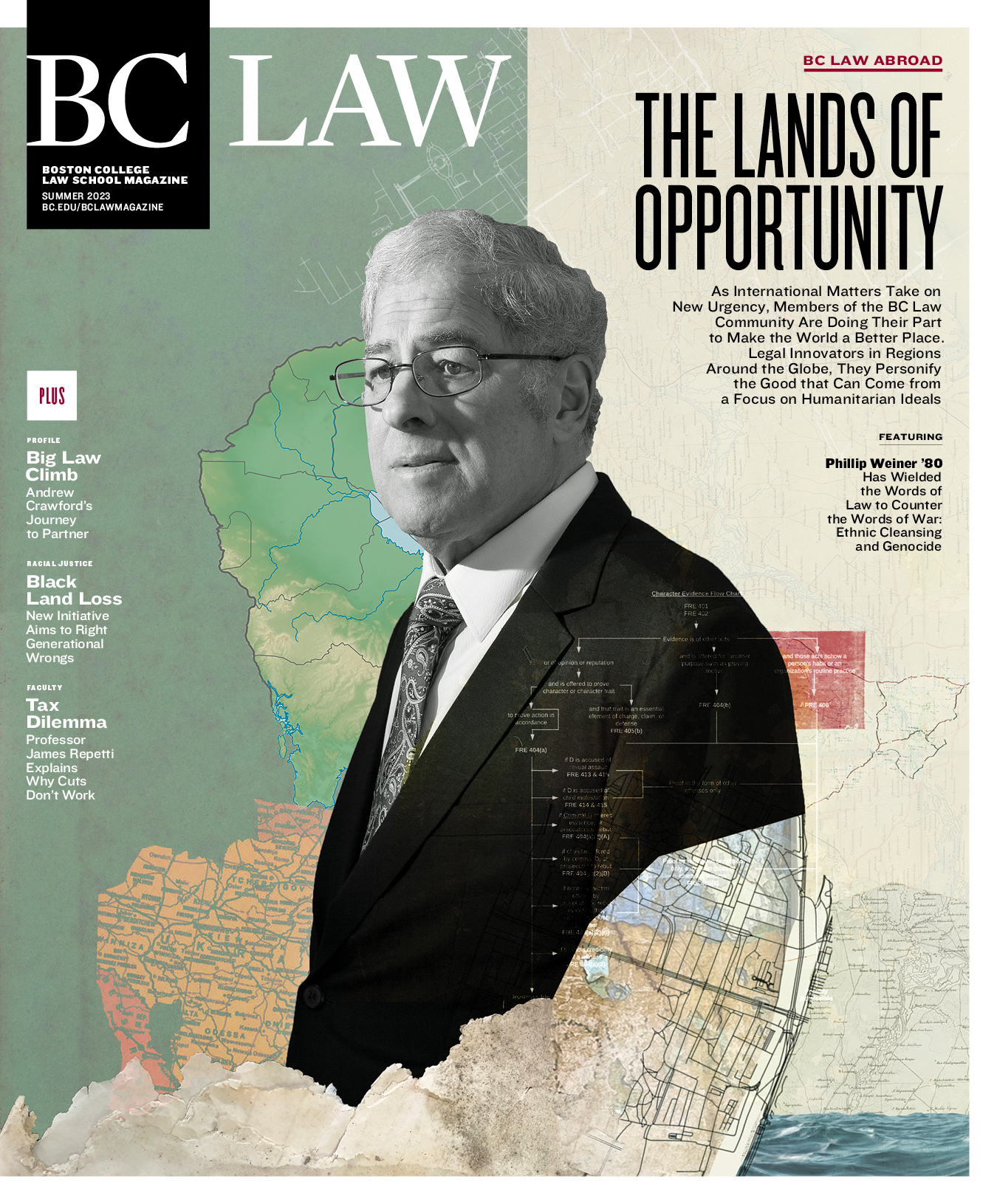Housing and land loss were top-of-mind at BC Law last spring, fueling a national gathering of experts and a number of other panel and speaker events. Top among them was the Land Loss, Reparations & Housing Policy Conference held in March during what came to be known as Property and Housing Law Week.
The two-day conference marked the launch of a new program at BC Law, the Initiative on Land, Housing, and Property Rights (ILHPR). Directed and inspired by the work of Robert F. Drinan, SJ, Endowed Chair and Professor Thomas Mitchell, co-author of the groundbreaking 2022 article, “Black Land Loss: 1920-1997,” the initiative—and its intention to redress wrongs of the past—was roundly welcomed by the scholars, policymakers, and planners in attendance.
“We’re here to train practitioners and members of the community who were never exposed to the real estate and housing issues that impact and disadvantage people.”
Professor Thomas Mitchell
“We’re not just here to train law students,” Thomas observed. “We’re here to train practitioners and members of the community who were never exposed to the real estate and housing issues that impact and disadvantage people. We want to be proactive sponsors for continuing legal education for all.”
The “Estimating the Generational Impact of Black Land Loss” panel provided a comprehensive overview of the history of Black land ownership, dating back to the colonial period. Between the end of the Civil War and 1910, the number of Black landowners expanded greatly; they owned 16 million acres of farmland. But soon white supremacist politics, the imposition of Jim Crow, and federal policies and discrimination during the New Deal reversed those gains. Researchers on the panel concluded that approximately $326 billion in value was lost to Black landowners in less than a century.
“A sense of a family’s history, the cultural importance of land ownership… we’ve seen the wholesale erasure of heritage,” Mitchell said. “You can imagine an alternate history where land ownership remained at that initial level, where we could have had a much more robust Black professional and middle class today.”
The day’s keynote was a fireside chat between BC Law Dean Odette Lienau and California attorney George C. Fatheree III, regarding a seminal reparations case he handled.
Other panels at the conference examined strategies to redress Black land loss, the history of Boston’s housing inequality and unaffordability, and housing affordability solutions. BC Law Professor Lisa Alexander, ILHPR’s faculty director of housing programs, moderated the second and third of those panels.Earlier in the week, Alexander also assembled a diverse panel of community development and affordable housing experts, people on the frontlines trying to find equitable solutions in Boston-area towns and neighborhoods. They spoke to students in her Housing Law and Policy seminar.



